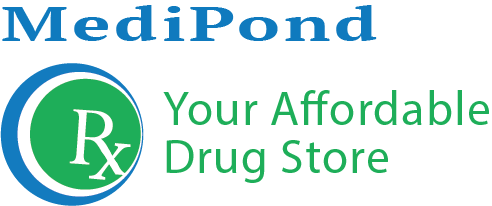SKU
RYBELSUS-14-MG-Oral-Tablet
Semaglutide is used with a proper diet and exercise program to control high blood sugar in people with type 2 diabetes. Controlling high blood sugar helps prevent kidney damage, blindness, nerve problems, loss of limbs, and sexual function problems. Semaglutide is also used in people with type 2 diabetes and heart disease to lower the risk of death from heart attack or stroke. Semaglutide is similar to a natural hormone in your body (incretin). It works by causing insulin release in response to high blood sugar (such as after a meal) and decreasing the amount of sugar your liver makes. If you use insulin, semaglutide is not a substitute for insulin treatment.
Swelling/redness/itching at the injection site, tiredness, nausea, vomiting, diarrhea, or constipation may occur. Nausea usually lessens as you continue to use semaglutide. If any of these effects last or get worse, tell your doctor or pharmacist promptly. Remember that your doctor has prescribed this medication because he or she has judged that the benefit to you is greater than the risk of side effects. Many people using this medication do not have serious side effects. Tell your doctor right away if you have any serious side effects, including: signs of kidney problems (such as change in the amount of urine), vision changes (such as decreased/blurred vision). Semaglutide has rarely caused a very serious (possibly fatal) disease of the pancreas (pancreatitis). Get medical help right away if you develop symptoms of pancreatitis, including: severe stomach/abdominal pain, nausea/vomiting that doesn't stop. Although semaglutide by itself usually does not cause low blood sugar (hypoglycemia), low blood sugar may occur if this drug is prescribed with other diabetes medications. Talk with your doctor or pharmacist about whether the dose(s) of your other diabetes medication(s) needs to be lowered. Drinking large quantities of alcohol, not getting enough calories from food, or doing unusually heavy exercise may also lead to low blood sugar. Symptoms may include sudden sweating, shaking, fast heartbeat, hunger, blurred vision, dizziness, headache, or tingling hands/feet. It is a good habit to carry glucose tablets or gel to treat low blood sugar. If you don't have these reliable forms of glucose, rapidly raise your blood sugar by eating a quick source of sugar such as table sugar, honey, candy, or drinking a glass of fruit juice or non-diet soda. Check with your doctor or pharmacist to find out what you should do if you miss a meal. Symptoms of high blood sugar (hyperglycemia) include increased thirst/urination. If these symptoms occur, tell your doctor right away. Your dosage may need to be increased. A very serious allergic reaction to this drug is rare. However, get medical help right away if you notice any symptoms of a serious allergic reaction, including: rash, itching/swelling (especially of the face/tongue/throat), severe dizziness, trouble breathing. This is not a complete list of possible side effects. If you notice other effects not listed above, contact your doctor or pharmacist. In the US - Call your doctor for medical advice about side effects. You may report side effects to FDA at 1-800-FDA-1088 or at www.fda.gov/medwatch.
Write a Product Review


